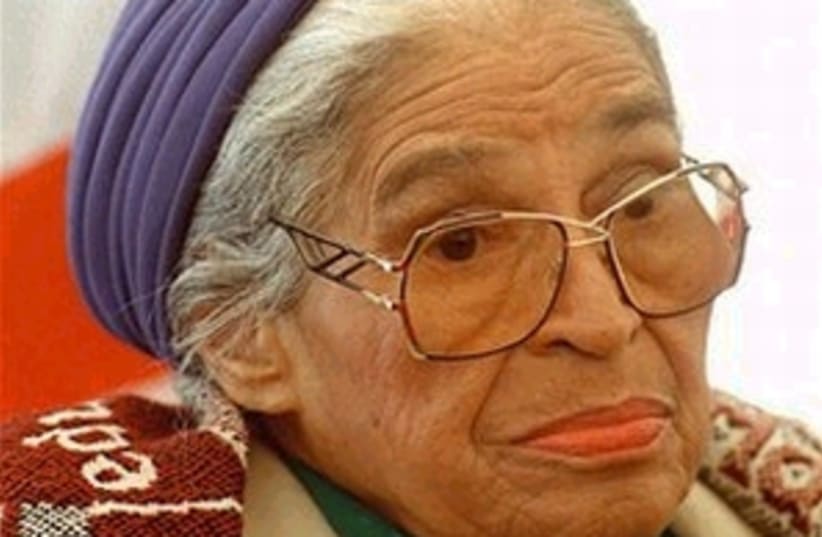| More about: | Rosa Parks, George W. Bush, Martin Luther King, Jr., Abraham Lincoln |
Rosa Parks honored at Capitol's Rotunda
Civil rights pioneer receives the kind of honor bestowed on Lincoln and Kennedy.


| More about: | Rosa Parks, George W. Bush, Martin Luther King, Jr., Abraham Lincoln |